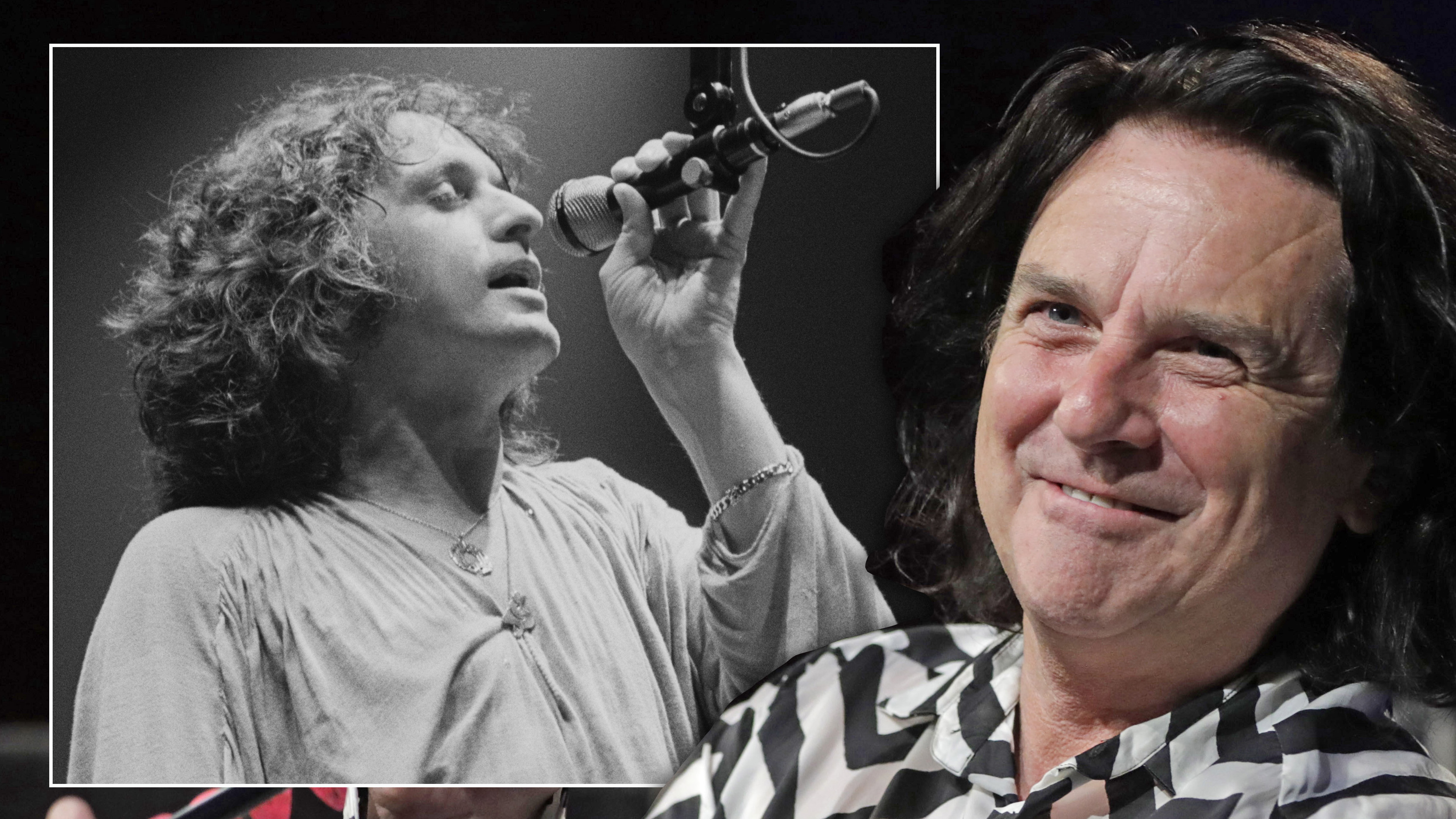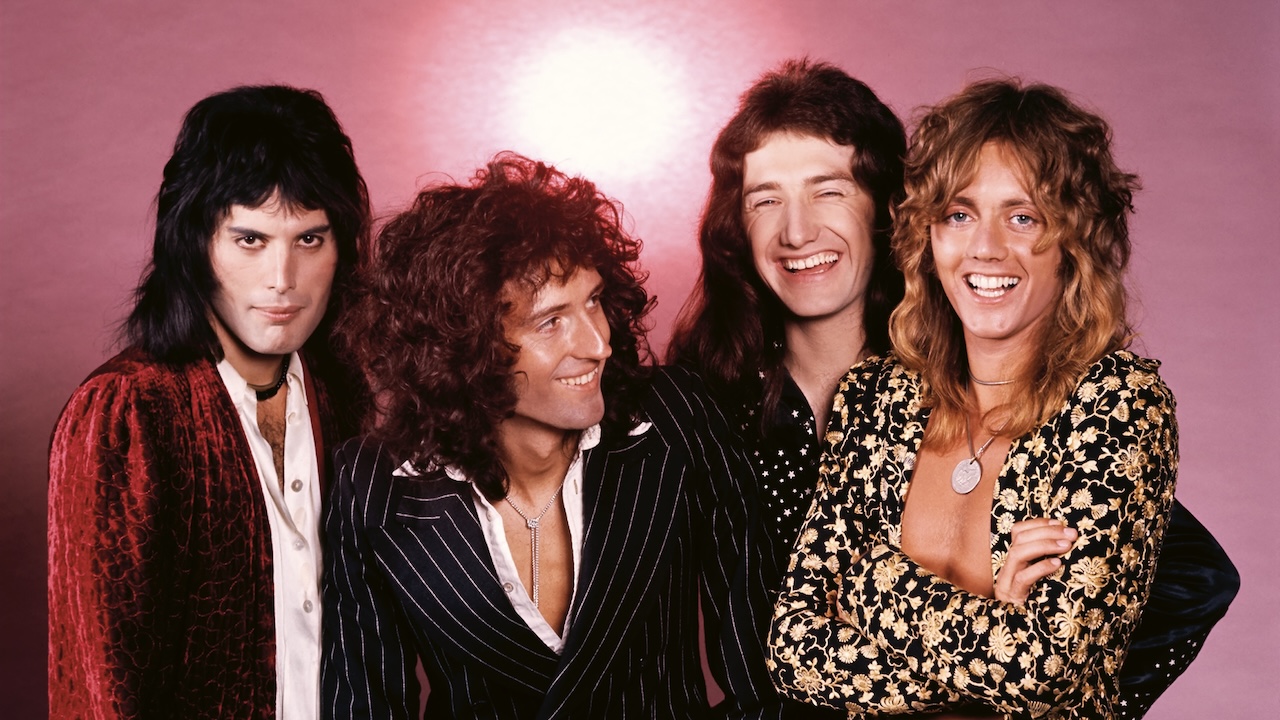“Asked if Going For The One was about God, spirituality or the oneness of all people, he said no – it was about putting a tenner on a horse race. You’re almost better off not knowing that!” Steve Hogarth on his hero Jon Anderson
The Marillion man was so moved by the experience of hearing Yes for the first time that he wrote a song about it

Select the newsletters you’d like to receive. Then, add your email to sign up.
You are now subscribed
Your newsletter sign-up was successful
Want to add more newsletters?

Every Friday
Louder
Louder’s weekly newsletter is jam-packed with the team’s personal highlights from the last seven days, including features, breaking news, reviews and tons of juicy exclusives from the world of alternative music.

Every Friday
Classic Rock
The Classic Rock newsletter is an essential read for the discerning rock fan. Every week we bring you the news, reviews and the very best features and interviews from our extensive archive. Written by rock fans for rock fans.

Every Friday
Metal Hammer
For the last four decades Metal Hammer has been the world’s greatest metal magazine. Created by metalheads for metalheads, ‘Hammer takes you behind the scenes, closer to the action, and nearer to the bands that you love the most.

Every Friday
Prog
The Prog newsletter brings you the very best of Prog Magazine and our website, every Friday. We'll deliver you the very latest news from the Prog universe, informative features and archive material from Prog’s impressive vault.
In 2019, marking our 100th edition, Prog asked leading lights of the genre to discuss their personal musical heroes. Marillion’s Steve Hogarth chose former Yes counterpart Jon Anderson.
“The choosing of a prog icon is, of course, an impossible task. I couldn’t not mention Peter Gabriel, could I? The first time I heard his voice was simply heart-stopping. So many great artists should be on the list – Adrian Belew, for instance. Adrian is the most incredible guitarist, but he plays his instrument like even the most technically difficult moves are no big deal because he’s entirely focused on the pleasure of the process.
However, I’m going to talk about Jon Anderson, a prog icon who had massive effect on me. I first heard Yes at a party at the age of maybe 16 years old. It was a life-changing experience, and I later wrote a song about it called The Party.
During the course of the evening somebody put on The Yes Album. Until that point I’d been listening to The Beatles, the Stones and The Kinks – but The Yes Album blew my mind. That night changed my whole idea about music. Jon Anderson’s amazing vocals and Bill Bruford’s amazing random drumming, Chris Squire’s grinding bass… everything at once; it was a genuine ‘what the fuck’ moment!
The following day I went out and bought The Yes Album. I loved Jon’s incredible high voice. He was singing in a totally different way to anything I knew, except maybe Tiptoe Through The Tulips by Tiny Tim. But there was nothing comedic about this; it was a thing of purity. There was something unearthly about it, just as it seems there is of Jon as a person.
The way he functions, the way he writes lyrics… Jon is not of this planet – and I mean that in a positive way. I’ve never met him, though I’ve worked with people who have. Pete Trewavas, our bass player, says great things. Lately I’ve worked with Trevor Horn, who tells me he’s a great singer.
What Jon did on Owner Of A Lonely Heart was laid down in just two takes, with no correction nor studio trickery. He was a technical singer and still is, even at the ripe old age he’s reached.
Sign up below to get the latest from Prog, plus exclusive special offers, direct to your inbox!
I went to see Yes for the first time on the Fragile tour, at Sheffield City Hall in October 1971. There was Rick Wakeman with his flowing white locks and silver cape, his grand piano, keyboards, Mellotrons and synthesisers set out around him in a great big circle. I’d never seen anything like that before. Chris Squire was there in his furry boots. Steve Howe had 27 guitars on coat-hangers and could play them all at once.
He wouldn’t request more top end on the sound; instead he’d say: ‘I’m not hearing enough angels’
And centre stage was Jon in his hippie clothing. If I remember right he had on an embroidered smock top with monk-like sleeves – you could have got another four people into the outfit’s arms! Everything about the experience was a trip.
Later on I bought Close To The Edge, which was very far-out. Which brings me to the other aspect of Jon, namely his lyric writing. He has that happy knack of writing words that sound great in the music but are very, very difficult to fathom.
I once heard Jon being asked about Going For The One in a radio interview – was the song about God, spirituality or the oneness of all people? Jon replied no, it was about putting a tenner on the three o’clock at Haydock Park racecourse! You’re almost better off not knowing that, right? But his lyrics always work wonderfully well by painting pictures in your head.
Somebody who’d worked with him told me that, in the control room, he wouldn’t request more top end on the sound; instead he’d say: ‘I’m not hearing enough angels. Can we have more angels, please?’
The producer would then find a way to get the sound Jon had in his head, thinking and hearing in those abstract terms – not of treble and bass, but of Heaven and Hell. I love that about him.”

Dave Ling was a co-founder of Classic Rock magazine. His words have appeared in a variety of music publications, including RAW, Kerrang!, Metal Hammer, Prog, Rock Candy, Fireworks and Sounds. Dave’s life was shaped in 1974 through the purchase of a copy of Sweet’s album ‘Sweet Fanny Adams’, along with early gig experiences from Status Quo, Rush, Iron Maiden, AC/DC, Yes and Queen. As a lifelong season ticket holder of Crystal Palace FC, he is completely incapable of uttering the word ‘Br***ton’.
You must confirm your public display name before commenting
Please logout and then login again, you will then be prompted to enter your display name.


